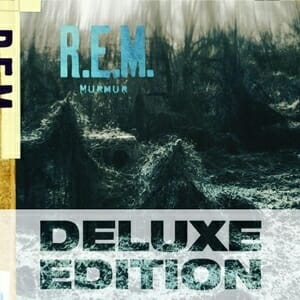
Even with so many classic albums, R.E.M. was never better than on its debut
Athens in 1983 was not the middle of nowhere. The B-52’s had introduced the music world to Georgia’s fifth largest city four years earlier, just before Bulldogs running back Herschel Walker introduced it to everyone else in 1980, leading UGA’s football team to its first undisputed national championship. But while Athens wasn’t a one-horse town, neither was it Greenwich Village or San Francisco or even Detroit; Athens was as unlikely a birthplace for a nationally renowned music scene as Muscle Shoals, Ala., before it.
But there’s something about a college town nestled in some small corner of rural America that ignites creativity in kids who grow up in towns like Macon, Ga., or Collinsville, Ill., and discover that there actually are others out there who share their passion for music, film or art. Beginning in the late ‘70s and early ‘80s, as the landscape of America was beginning to look the same everywhere, relatively remote academic locales served as quirky bastions of individuality. Other college towns like Chapel Hill, N.C.; Madison, Wisc., and Austin, Texas, would eventually get their moment. But in 1983, the spotlight was on Athens, thanks to R.E.M.’s full-length debut, Murmur.
All four of the band’s members spent part of their lives far from Georgia, but Murmur became indelibly tied to its city of origin because it sounded unlike anything from anywhere else. Peter Buck didn’t invent the jangly Rickenbacker tones he employed so wonderfully on the album, but it had been a long while since The Byrds had taken flight. And the way Buck’s guitar and Mike Mills’ bass busily bounced around otherwise simple choruses created something entirely new. Michael Stipe put his stamp on this already singular sound, crooning mumbled, enigmatic phrases like, “They called the clip a two-headed cow / Your hate clipped and distant, your luck, pilgrimage,” and it sounded like the most important sentiment uttered on record since Dylan’s Blonde on Blonde.
Even the album’s now-iconic cover art, a railroad trestle covered in leafy green kudzu, seemed exotically Southern, though it looked to locals like every other railroad trestle or abandoned shack or shrubbed hillside drowning in the imported Japanese weed. There was nothing mystical about the four musicians who meshed together on Murmur, but their sound emerged so fully formed that even after 26 years and 15 proper albums, it’s still arguably their best. And those albums that might contest the honor—Reckoning and Lifes Rich Pageant—rely so heavily on the Murmur template as to make the argument moot.
The album’s “Deluxe Edition” includes a 16-song bonus disc from a concert in Toronto three months after the album was released. It was the band’s third show in Canada, but they’d been touring relentlessly, playing more than 300 gigs during the three previous years. The songs sound surprisingly like the record (save for some painfully off-key singing on “Harborcoat”), emphasizing the lack of studio trickery in Mitch Easter and Don Dixon’s production. The formula was so simple it could’ve been recorded with five tracks: Buck’s shiny, happy guitar melodies buoyed by Mills’ equally playful bass licks; Stipe’s moody voice that begged you to mumble along (even when you couldn’t decipher the words) merging dreamily with Mills’ understated harmonies; and Bill Berry’s solid, shuffling backbeat. Despite the hundreds of bands (including dozens back in Athens) that tried, no one could ever perfect the blend so well. And though R.E.M. has sloughed off their three-album slump to return to mid-career form on Accelerate, the uncomplicated magic of Murmur remains elusive, even to the band that created it.